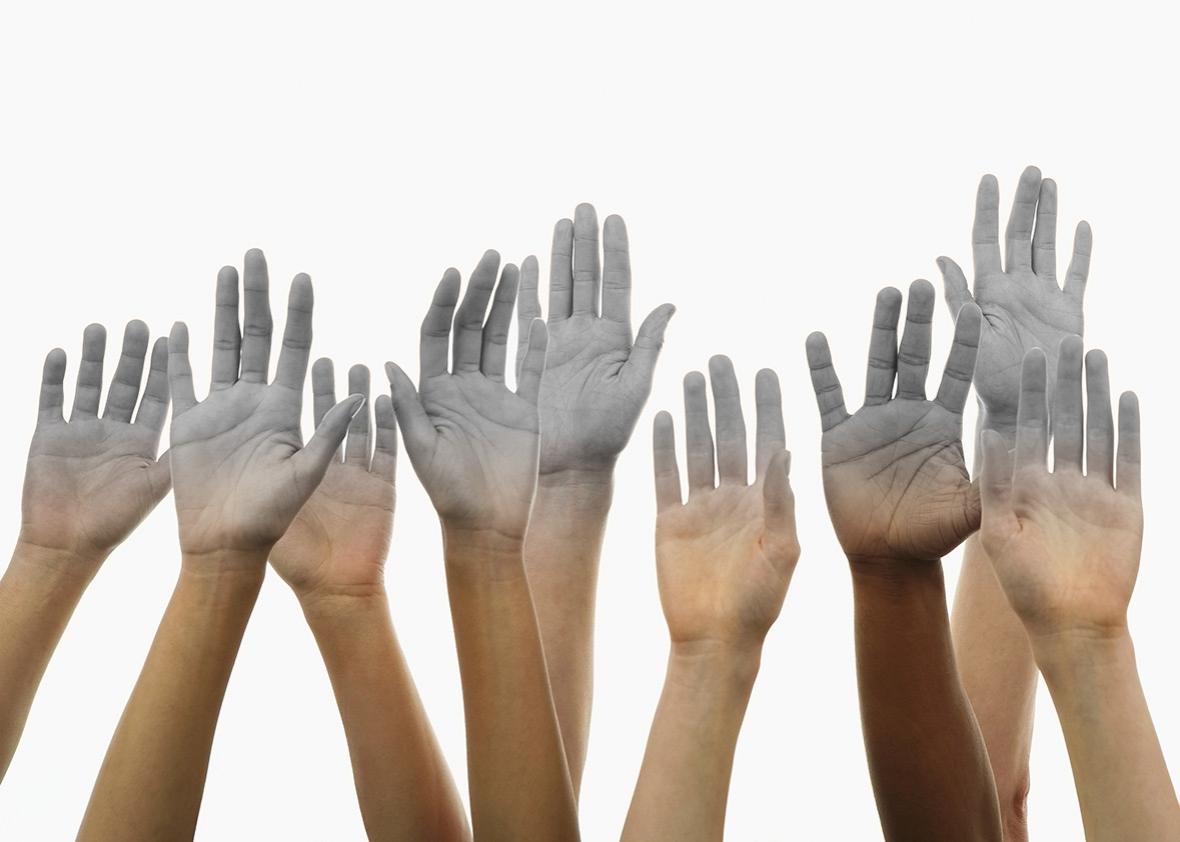The hashtag campaign #MeToo has served as an indelible reminder this week that feeling uncomfortable and unsafe because of a man is part of almost every woman’s life. The movement started on Sunday when actress Alyssa Milano tweeted about it, urging women to share their stories. (Ebony pointed out that a black activist named Tarana Burke started using “Me Too” to unify sexual assault victims a decade ago.) Milano’s tweet included language that made its way into the first wave of posts: “If all the women who have been sexually harassed or assaulted wrote ‘Me too.’ as a status, we might give people a sense of the magnitude of the problem.”
The avalanche of responses has proved a powerful testament to the sheer scope of women’s negative experiences at the hands of men. Participants raged, commiserated, and mourned. Celebrities including Lady Gaga and Evan Rachel Wood joined in, but most of the tens of thousands of response came from regular women, of all ages and all over the world. Scrolling through the list of “Me, too” posts on Facebook, Twitter, and Instagram was, in its own small way, a breathtaking experience, both liberating and dispiriting at once.
But there were other aspects of the #MeToo movement that seemed slightly uncomfortable as the posts piled up. The conflation of women who have been “sexually harassed or assaulted” in Milano’s post was meant as a way to capture the wide spectrum of harm perpetrated by men against women, everything from creepiness to criminality. But “harassment” in the colloquial sense encompasses a vast range of misbehavior, and some of it is extremely far removed from the “assault” that the #MeToo prompt lumped it in with. Is it really fair to talk about them in the same breath?
Like every woman on Earth, I’ve experienced a range of gross grabs and come-ons that would qualify me to join the #MeToo movement. The stranger who pressed up against me in the sleeper car of a train. The guy who yelled and begged when I declined a second date. Countless acts of street harassment, from jovial to menacing. The teenager who exposed himself to me in a Washington Metro station. And so on.
It’s not that I don’t think these moments “count.” They happened, and they shouldn’t have. But the truth is none of these incidents made a significant impact on me. They didn’t hurt my career, my body, or my mental health. I have been extraordinarily lucky. To me, publicly announcing my kinship with people who have suffered rape, assault, or sustained harassment doesn’t feel right, even under the capacious umbrella of solidarity.
There was a similar problem with the “Shitty Media Men” spreadsheet that circulated recently among female journalists. The open Google document was meant to serve as a sharable version of the kinds of informal whisper networks that women use to warn one another about particular men. The document, which for awhile could be updated anonymously by anyone who had access to the right link, included the names of men accused of everything from nonconsensual anal sex to “weird lunch ‘dates.’ ” As Slate’s Christina Cauterucci pointed out, the spreadsheet effectively collapsed the distinctions between those acts. “After closing the document, all but the most vile deeds became irrelevant,” she wrote. “Only the names remained in my head.”
The #MeToo movement doesn’t ask women to name the men who have harmed them. It is a show of hands, not a pointing of fingers. As the hashtag has evolved and spread, some men have begun participating themselves, by confessing their own misbehavior as aggressors and creeps. (Some are hopping onto the original hashtag, and others are using #IWill or #HowIWillChange.) That’s an encouraging trend, in part because it removes some of the burden from women who have long carried on these conversations almost exclusively among themselves. But even those who don’t feel ready or called to participate in #MeToo can benefit from it. Sometimes the best thing to do is listen.
